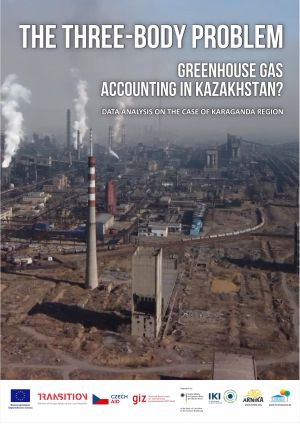The EcoMuseum in Karaganda, in partnership with the Czech NGO Arnika and the German development agency GIZ, is leading a two-part initiative aimed at addressing the climate crisis in the Karaganda region. The projects focus on both climate change mitigation and adaptation, supported by the European Union, the Czech Ministry of Foreign Affairs, and the German Federal Ministry for the Environment.
In addition to developing a regional action plan for greenhouse gas (GHG) emission reduction, the initiative reviewed existing emissions data and uncovered serious gaps in Kazakhstan’s reporting systems. This analysis forms the basis for selecting the most polluting sectors and designing cost-effective climate measures that can have a real impact on reducing emissions in the region.







